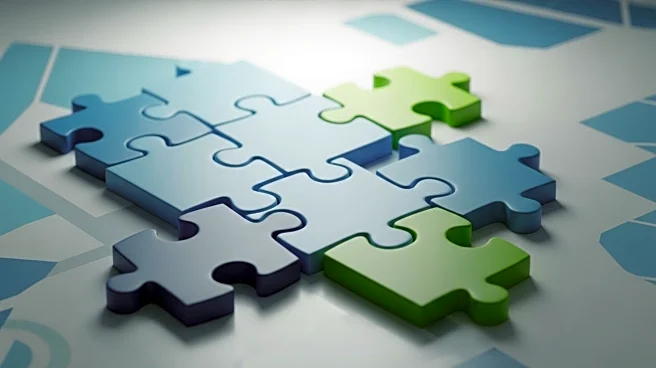What's Happening?
OpenAI has released a report indicating that only 1.9% of conversations on ChatGPT are related to relationships and personal reflection. The study analyzed messages from 1.1 million conversations between May 2024 and July 2025, revealing that most interactions are focused on information seeking and writing critiques. Despite the low percentage, experts argue that the data may not fully capture the extent of human-AI relationship dynamics. Conversations categorized under 'Greetings and Chitchat' and 'How-to Advice' often contain elements indicative of relationship building. The report highlights the complexity of human-AI interactions, where ongoing communication can foster a sense of companionship.
Why It's Important?
The findings from OpenAI's report shed light on the evolving nature of human-AI relationships, which are becoming more prevalent as AI technology integrates into daily life. The low percentage of relationship-focused conversations suggests that while AI is used for companionship, it remains primarily a tool for information and task assistance. However, the potential for AI to simulate human interaction raises ethical and societal questions about its impact on social behavior and mental health. As AI companions become more common, understanding their role in human relationships is crucial for developing responsible AI technologies and policies.
Beyond the Headlines
The report highlights the human tendency to anthropomorphize AI, attributing emotions and intentions to non-human entities. This behavior can lead to unique trust-building dynamics between users and AI, particularly among socially isolated individuals and teens. The sycophantic language of chatbots, which can mimic social validation, poses challenges in distinguishing genuine interaction from programmed responses. OpenAI's decision to exclude users under 18 from the report reflects concerns about the influence of AI on vulnerable populations. The findings underscore the need for ongoing research into the psychological effects of AI companionship and its implications for social development.









